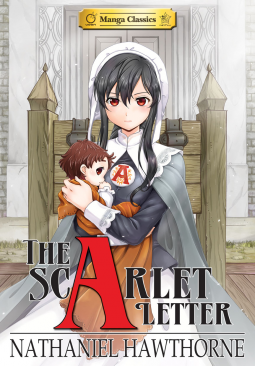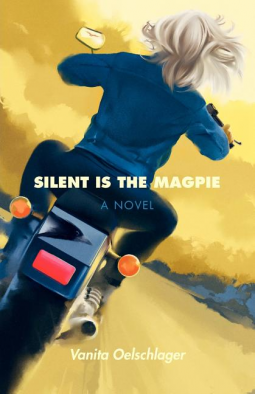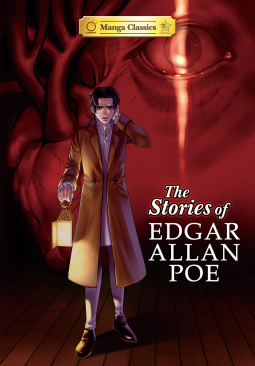
Lady Macbeth
by Nicolas Freeling
This title was previously available on NetGalley and is now archived.
Send NetGalley books directly to your Kindle or Kindle app
1
To read on a Kindle or Kindle app, please add kindle@netgalley.com as an approved email address to receive files in your Amazon account. Click here for step-by-step instructions.
2
Also find your Kindle email address within your Amazon account, and enter it here.
Pub Date Jul 28 2017 | Archive Date Nov 16 2018
Description
Is there any real treachery? – save between man and wife.
A husband and wife drive through the switchback roads of the Vosges Mountains. A husband and wife have an explosive argument. The husband returns home. The wife does not.
Guy and Sibille Lebfebvre share a normal marriage, filled with more happy moments than stormy passages. That is until they have an explosive argument, and Sibille storms out of their car and into the deserted mountain roads.
With Sibille now missing for six months, Arlette Davidson is sure something sinister has transpired. Her family hasn’t heard from her, her bank account hasn’t been touched, and, most troubling, her husband hasn’t bothered to find her. Arlette Davidson decides it’s time to start looking. With the help of Henri Castang, she launches an investigation into Guy Levfebvre.
Guy swears that this is nothing more than a cold war of pride – Sibille too stubborn to come home, he too obstinate to reach out. But Guy’s diary suggests he has something to atone for…
In this dark and winding mystery, can Castang determine who did it? Or is the greater question has it happened at all?
A Note From the Publisher
If you enjoyed reading Nicolas Freeling's 'Lady Macbeth', we'd really appreciate seeing your honest review on Amazon. Thank you and happy reading. Ipso Books.
Available Editions
| EDITION | Ebook |
| ISBN | 9781912194179 |
| PRICE | £3.99 (GBP) |
Links
Featured Reviews
 Tina S, Reviewer
Tina S, Reviewer
This is a book by the author of the Van der Valk novels, I watched those on tv and so was intrigued to read a book by him, although this involves a different character.
It involves the investigation into the disappearance of Sibille Lefebvre, which is carried out by Henri Castang and Arlette Davidson, Van der Valk's wife, who remarried after his death, and who runs an enquiry bureau. Sibille disappears during a drive through a mountainous region. There is no activity on her bank account or credit card, and no communication from her, so it is assumed that she is probably dead.
The chapters swap around between different characters which helps keep the story moving, but I did find it heavy going in parts, I think that fans of the Van der Valk tv series will enjoy the book.
Thanks to Netgalley and Ipso books for a copy in exchange for an honest review.
 Ruth M, Educator
Ruth M, Educator
Nicolas Freeling, What are the Bugles Blowing For? 1975 (with bonus book)
ASIN: B06XHR7BXV
Nicolas Freeling, Lady Macbeth 1988
ASIN: B00MA6YNT6
Nicholas Blake, Malice Aforethought 1940
ASIN: B007NG941K
When crime novels are assiduously brought back into print, they often do very well, buttressed by the historical period in which they were written, which seems, with hindsight, beautifully imagined. As it should, of course. Nicholas Freeling tired of his first detective, Van der Valk (no Dutch reader ever thinks he’s anything but an Englishman), and then created Henri Castang, a French detective. Bugles was the second novel in this latter series, published in 1975, six years before Robert Badinter, Mitterand’s Justice Minister, persuaded the President to abolish the death penalty by executive order. The novel is set just before the last time a condemned person was executed: when they were still offering the condemned a stiff drink before the guillotine. So there’s a certain piquancy to the plot, and Henri Castang references crime writers he admired, from Martin Beck to Freeling’s own van der Valk. Castang is sitting in his office on a very hot summer day (his commissaire seems to have taken the day off) when a man rings and announces that he has murdered his wife, daughter, and their lover. The story unfolds slowly. What now seems striking is its strong resemblance to Maigret et l’affaire Saint-Fiacre, published in French in 1932 and filmed in 1959 starring Jean Gabin (I use:https://www.trussel.com/f_maig.htm). The novel was Maigret’s thirteenth outing, and it was much republished, in French and in English translation. (Freeling and Simenon recognized each other’s similar strengths.) The diversion in the character of the policemen is not that Maigret is a commissaire, and Castang is not, but that Maigret is returning to the village in which he grew up, while Castang—while also a provincial—has none of Maigret’s distance. The two murderers are both men of high social status and the kinds of connections that result from their status and education. In fact, this is one of Freeling’s most Simenon-ish book, which has the added pleasure of encouraging his readers to visit Saint-Fiacre as well, where I was most struck by the little boy who has already learned to lie and cheat.
Lady Macbeth (1988) is another, much later, Castang story—and another story. Castang has an intuition, based on a woman who reminds him of Shakespeare’s character. It is an even darker noir than Bugles. More demanding and complicated than the early novels, but just as admiring of Simenon, with the same ability to wait out interviewees. Despite what Castang (this is almost all in the first person, but there are half a dozen other narrators, one called ‘Arlette’, her second husband, and Castang’s former boss) says, his ‘Lady Macbeth’ has had to deal with a lot of blood, and ideas about Lady Macbeth reappear throughout, but are not Shakespeare’s tortured wife. A good book for a long winter’s day.
Nicholas Blake (better known as Cecil Day Lewis, father of Daniel and Tamasin and Poet Laureate) wrote twenty crime novels. Malice in Wonderland (1940) was the sixth. The novels are in period, and set in a variety of places. This one is a summer camp for grown-ups. Structurally, they tend to start with one or more characters not at all like Nigel Strangeways, his amateur sleuth, some of whom last the length of the mystery, while some do not. Lest it be thought this typical of the end of the between-the-wars ‘cosy’, we should remember that John LeCarre has used precisely this kind of opening, with similarly (but rather more serious) Byzantine twists and turns. However, I do recognize that this kind of book attracts its own kind of reader. Since I revere Day Lewis for his Virgil translations, if you are put off by this kind of novel, let me suggest you read those instead.
Readers who liked this book also liked:
Charles Dickens, Crystal S. Chan, Nokman Poon
Comics, Graphic Novels, Manga, Teens & YA




























